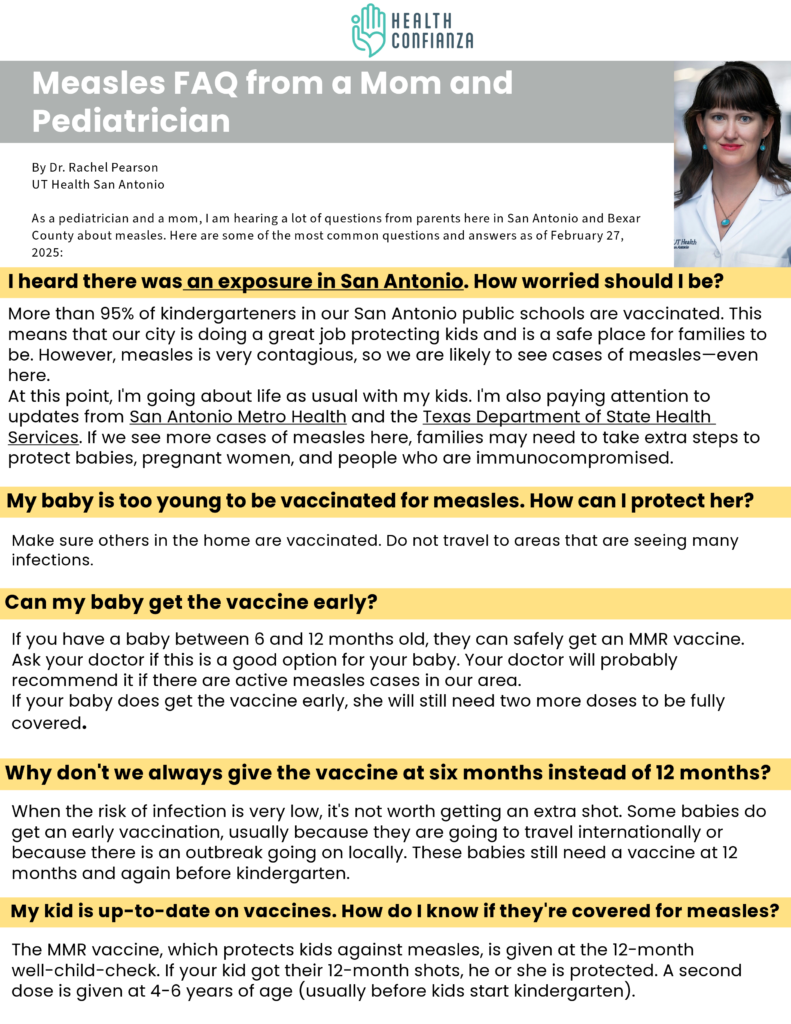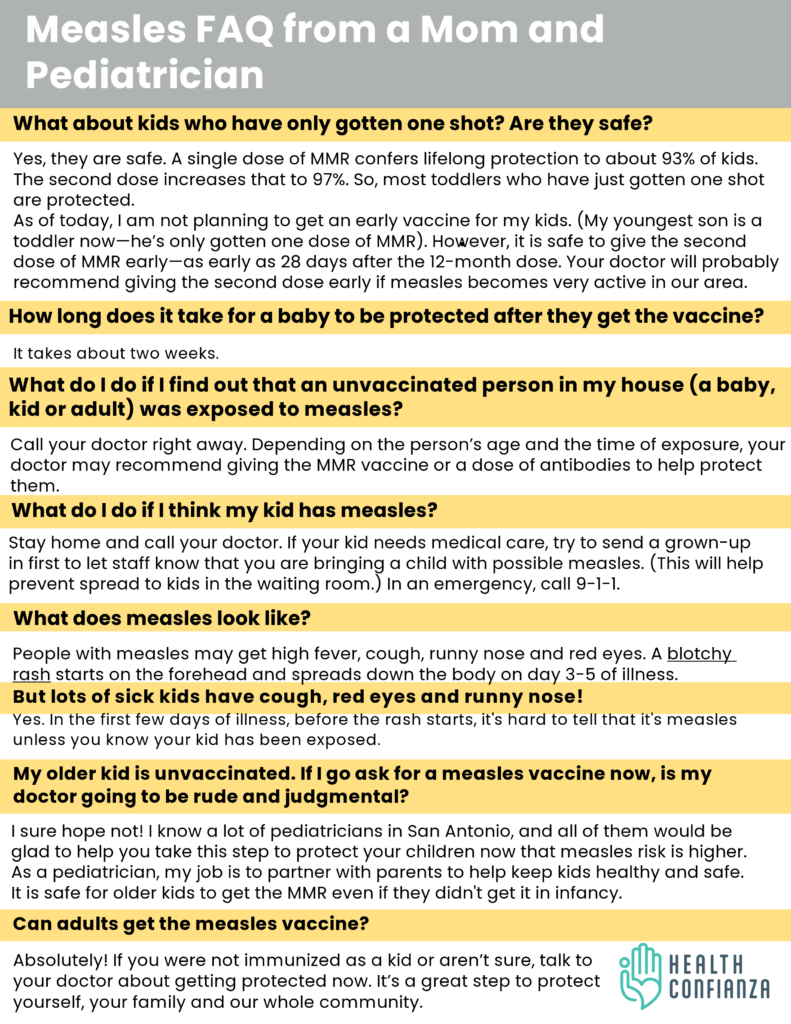In the light of the measles outbreak in Texas, Health Confianza has put together a list of resources to help you and your family understand measles and learn ways you can protect yourself and your family.
Why trust Health Confianza? We are health experts, physicians, nurses and community health workers who live in your community. We partner with nonprofits, health providers, community leaders and others to make sure that you have access to accurate health information. If you have a question not addressed below, email us at Confianza@uthscsa.edu.
- KLRN Healthy Kids Project Webinar on Measles, featuring Dr. Adelita Cantu
- Measles Myths: Dr. Maria Fernandez Falcon
- Mitos sobre el sarampión: Dr. Maria Fernandez Falcon
- Measles FAQ from Mom and Pediatrician: Dr. Rachel Pearson
- Download Dr. Pearson’s Flyers in English and Spanish
- Measles Resources Table
KLRN Healthy Kids Project “Springtime Salud” measles webinar
San Antonio, TEXAS — The measles, a once-eliminated childhood illness, is back in the spotlight. As of March, there were around 300 confirmed measles cases in Texas and New Mexico, with cases now rising in other parts of the United States.
Since the threat of measles is new to many of us, Health Confianza asked Adelita Cantu, a nurse and associate professor at the University of Texas Health Science Center at San Antonio, to give a refresher on this viral infection. In this informative, 30-minute measles presentation, Cantu dives into the history, symptoms, impacts and effectiveness of vaccines.
Watch the free KLRN Healthy Kids Project webinar below.
Measles Myths
By Dr. Maria Fernandez Falcon
UT Health San Antonio
Myth #1: MMR vaccine causes autism.
There is very strong scientific evidence that confirms that the MMR vaccine, or any other vaccines do not cause autism.
Multiple studies from the U.S. and other countries around the world investigated this question. They reviewed data from thousands of thousands of children. They all got the same conclusion: The MMR vaccine does not cause autism.
One of the reasons for this belief is the confusion between the concepts of correlation and causation. Correlation happens when two different events occur at the same time; in this case the first dose of the MMR vaccine is given at the age of one, this is the same time that kids with autism start to manifest symptoms. This is a correlation, not a causation.
Myth #2: Measles is just a children’s infection.
Measles is not just a kids’ infection. Actually anybody, children and adults, who are susceptible to the virus, can get infected if exposed to measles. Measles is one of the most contagious infections in planet earth. This recent outbreak in North Texas affected many adults as well as young children. Most of them were not fully immunized.
Measles is a serious disease. One in five patients with measles needs hospitalization due to significant complications like pneumonia and encephalitis. Unfortunately, one in 1,000 patients with measles dies.
Myth #3: There is a natural way to prevent measles. I don’t need any vaccines.
There is not a natural way to prevent this infection even with good sanitation like hand washing. The reason is because measles virus is transferred by air drops. This virus can survive the environment for up to two hours. That means that most of the susceptible people exposed to somebody with measles or to the infected virus in the environment will get sick. The most effective way to prevent measles is getting vaccinated with the MMR vaccine.
Mitos sobre el sarampión
Mito #1: La vacuna MMR causa autismo
Existe evidencia científica muy sólida que confirma que la vacuna MMR o cualquier otra vacuna no causa autismo.
Múltiples estudios realizados en Estados Unidos y otros países del mundo investigaron esta cuestión. Revisaron los datos de miles y miles de niños. Todos llegaron a la misma conclusión: la vacuna MMR o triple viral (contra el sarampion, la rubeola y la paperas) no causa autismo.
Una de las razones de esta creencia es la confusión entre los conceptos de “correlación” y “causalidad”. La correlación ocurre cuando ocurren 2 eventos diferentes al mismo tiempo; en este caso, la primera dosis de la vacuna contra el sarampion se administra al año de vida, este es el mismo momento en que los niños con autismo comienzan a manifestar síntomas. Esto es correlación, no causalidad.
Mito #2: El sarampión es solo una infección de niños
El sarampión no es solo una infección de niños. En realidad, cualquier persona, niños y adultos, que sea susceptible al virus, puede infectarse si se expone al sarampión.
El sarampión es una de las infecciones más contagiosas. Este brote reciente en el norte de Texas afectó a muchos adultos, así como a niños pequeños. La mayoría de ellos no estaban completamente inmunizados.
El sarampión es una enfermedad seria. Uno de cada 5 pacientes con sarampión necesita hospitalización debido a complicaciones significativas como neumonía y encefalitis. Desafortunadamente, uno de cada 1.000 pacientes con sarampión muere.
Mito #3: Existe una forma natural de prevenir el sarampión. No necesito ninguna vacuna.
No existe una forma natural de prevenir esta infección, incluso con un buen saneamiento como el lavado frecuente de manos. La razón es que el virus del sarampión se transmite por gotas aéreas. Este virus puede sobrevivir en el medio ambiente hasta 2 horas. Eso significa que la mayoría de las personas susceptibles expuestas a alguien con sarampión o al virus infectado en el medio ambiente se enfermarán.
La forma más eficaz de prevenir el sarampión es vacunarse con la vacuna MMR (triple viral).


Below is a table with local and national resources providing updates, news and facts around measles and prevention.
| Name | Description |
|---|---|
| San Antonio Metropolitan Health District | Measles Exposure in San Antonio |
| Texas Health and Human Services | News and Alerts |
| Salud America | Measles: Preventing the Spread in Healthcare |
| CDC | Measles isn’t just a little rash |
| Nebraska Medicine | MMR Vaccine Myths |
| Arnold Palmer Children's Hospital | Measles Myths and the Real Facts |

